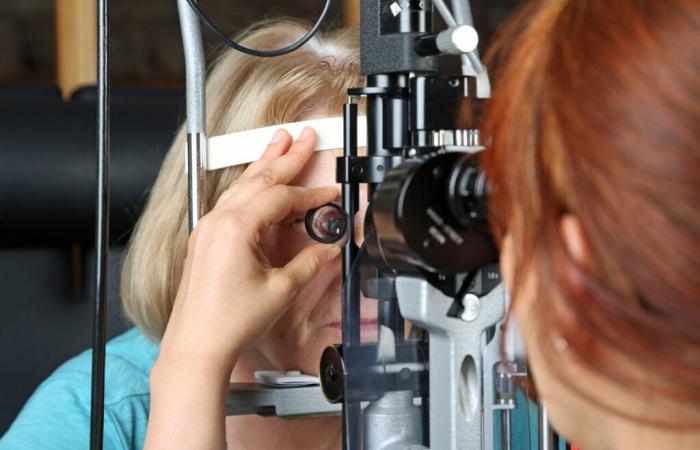Par
Maxim T'sjoen
Published on
Nov 18, 2024 at 8:04 p.m.
See my news
Follow News
An illness that affects many French people: myopia. This disease affects 4 out of 10 French people. Not nothing. And if the solutions, glasses and lenses, work, there is a solution to get rid of them: the operation.
However, this one is not not refunded. An aberration, one might be tempted to say, when one imagines the number of people who could regain their sight. actu.fr therefore sought to know why this operation could count up to 4,000 euros was not covered by Social Security.
Myopia
Myopia is a vision disorder that results in blurred vision at a distance and clear vision up close. This is often due to an eye that is too long. It can be hereditary, but close vision, reading or screen activities can accentuate its development. As is the lack of outdoor activity.
What is this operation?
“There are five, six techniques” of operation to correct myopia, indicates Thierry Bour, former president of the National Union of Ophthalmologists of France, at actu.fr.
But overall, 80 to 90% of operations are carried out via two techniques with lasers.
Concretely, “the operation must restore the eyes to normal conditions,” the ophthalmologist tells us. And, although not everyone is eligible for this operation, you must have stabilized vision for at least two years, and be of legal age.
“We must not do it too early, nor too late,” insists Cédric Thein, member of the association, MYopiA, for patients with myopia, requested by actu.fr.
How much does it cost?
What is interesting about this operation is that “we can guarantee stable vision for around twenty years”, explains Thierry Bour. Afterwards, old age arrives and astigmatism can cloud your vision.
However, note some negative consequences identified by the ANSM: drying of the eyes, possible detachment of the retina.
Cédric Thein, patient member of the MYopiA association, therefore urges caution: “The eye is irremediable. The risk/success factor must be measured. »
Especially since this operation has a cost: between 1,000 and 2,000 euros per eye. A significant cost, when we know that it is not reimbursed by Health Insurance. Mutual insurance companies cover “300/400 euros” generally, indicates Thierry Bour. But faced with such a sum, some cannot afford such an expense.
Why is this not refunded?
This non-reimbursement therefore surprised us. Surprised, because glasses, “orthotics”, are relatively expensive, even if 100% health allows almost full reimbursement on a limited collection.
Surprised, even if there are lenses, “but they are very little reimbursed”, regrets Thierry Bour. 60% per year and per eye on a package set at 39.60 euros. Mutual insurance companies can cover the rest, but this is not not always the case depending on the packages.
So to solve myopia, a growing problem in today's society, the operation seems (for some), an appropriate solution. But it is not reimbursed. The reason given by Health Insurance: “It’s a comfort operation. »
Who decides on reimbursement for a medical procedure?
It is Health Insurance which decides whether or not a medical procedure will be reimbursed. “The HAS evaluates professional procedures in order to inform the Health Insurance decision with a view to their reimbursement. The HAS evaluates their expected service by taking into account the diagnostic or therapeutic interest (effectiveness, safety and place of the procedure in the care strategy) and the public health interest (impact of the act on the health of the population and the healthcare system)”, specifies the High Authority of Health on its site.
See all
Reasons mentioned
Cédric Thein, who regrets that “myopia is not considered as an illness”, denounces “ a lack of long-term thinking
», on the non-reimbursement of myopia.
Optical equipment is a cost. Over a year, repaying the operation has an impact, that's for sure. But not in other years.
“Surgery makes patients less dependent on glasses,” confirms Thierry Bour, who sees another obstacle to reimbursement for surgery:opticians.
The optical market represents nearly seven billion euros in France, and a large part is reimbursed. “France is the country where the optical cost per capita is the highest. Two thirds of people change their glasses before two years,” analyzes the former president of the National Union of Ophthalmologists of France. “It pushes people to consume. »
Obviously, the arrival of reimbursement for surgery would be a loss of customers for opticians, even if not all patients are eligible for the operation.
Thierry Bour invokes the medical, before any other consideration. “Ophthalmologists must treat eye pathology,” recalls Thierry Bour, who believes that a change in reimbursements for surgery “would not be illogical.” It remains to be seen whether this point of view will be heard.
Follow all the news from your favorite cities and media by subscribing to Mon Actu.






